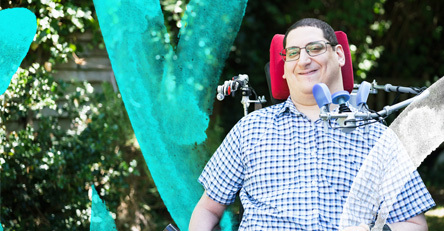
On World Cerebral Palsy Day, charity highlights major health inequality facing UK adults with CP
Despite cerebral palsy being recognised as a lifelong condition by the NHS, support for individuals with CP effectively disappears when they turn 18. This has profound consequences for the UK’s 130,000 adults living with cerebral palsy as regards their long-term health, employment prospects, and quality of life.
For example:
• Adults with CP are almost 14x more likely to die from respiratory disease and experience 5.8x more falls, adding to preventable NHS costs
• Only 5% of adults with CP are referred to specialist neurological services, despite significantly higher rates of strokes, heart disease, arthritis, and diabetes than the general population.
The UK lacks a nationally commissioned specialist service for adult CP care, leaving individuals to navigate a fragmented and inadequate system, experiencing a major health inequality.
Currently, annual health checks by GPs are not mandated for adults with cerebral palsy, even though it is categorised by the NHS as a lifelong condition. If you’re over 50, access to these checks depends entirely on whether your GP offers them. If you’re under 50, they’re not available at all.
Without regular health monitoring, many adults with CP end up on long hospital waiting lists – care that could have been prevented with early intervention.
Emma Livingstone, Co-founder and CEO of UP – The Adult Movement for Cerebral Palsy says,
“We need annual health checks for all adults with CP, regardless of age. Preventive healthcare is crucial to reducing unnecessary hospital admissions and ensuring a better quality of life for people with CP.”
The charity is calling on the Government to include cerebral palsy as a recognised condition within the Quality and Outcomes Framework (QOF), which provides financial incentives to GPs for the management of specified conditions.
Given the Government’s stated priorities of improving preventative healthcare and increasing employment participation, the charity says the economic case for action is clear. Indeed, it commissioned a health economics study which estimates that establishing an Adult Cerebral Palsy National Support Network would cost only £20 million per year. The savings, however, would be significant: if just 4,000 more adults with CP were able to work, the economic gain would be £80 million annually.






